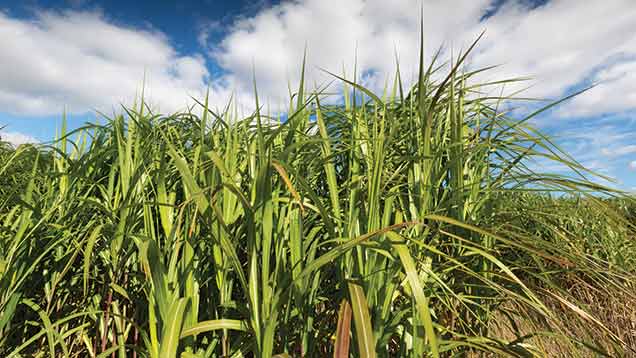Miscanthus growers wanted to meet renewable heat demand
 © Tim Scrivener
© Tim Scrivener Strong growth in commercial and domestic energy generation from biomass presents good opportunities for growing miscanthus on long-term contracts, growers were told at Cereals last week.
Terravesta, a company that processes about 60% of the UK’s 8,000ha of miscanthus into pellets for biomas plants, said it wanted to double that area by 2020 and was signing up growers on 10-year retail price index-linked contracts.
Chairman William Cracroft-Eley said biomass demand from large-scale power stations such as Drax, which co-fires biomass with fossil fuel, had driven the growth of the sector, but there were many other opportunities, not least the expanding domestic pellet market.
“We have long-term off-take contracts with end-users, so can offer growers a predictable enterprise that runs for at least 10 years.”
The crop can be grown on marginal land and tolerates wet and dry conditions, plus offers good suppression of weeds such as blackgrass, he added.
Upfront cost
But Mr Cracroft-Eley acknowledged growers would have to invest in the crop without an immediate return, as no establishment grant was available.
Miscanthus rhizomes and loan of a specialist planter cost about £1,050/ha, based on a 15ha area at 15,000 plants/ha, although it could be less for large areas. Farmers would be responsible for the planting and he estimated cultivation and establishment costs would add £400/ha.
It would take two years before the first crop could be harvested, with initial yield likely to be about 4t/ha, although this would increase to 12-15t/ha, he added.
“Once planted, there is very little cost apart from some herbicide and fertiliser in years one and two.”
Growers can either cut and bale the crop themselves or use a contractor. Full-size Hesston bales with a moisture content below 16% are required and a self-propelled forage harvester is needed for cutting.
Ideally bales should be stored indoors on a dry floor, while outside stacks need to be protected top and bottom to minimise wastage.
The 2015-16 contract price of £74/t delivered was equivalent to about £64/t ex-farm for growers within 50 miles of the Drax pelleting plant at Goole or the Terravesta plant in West Cambridgeshire, although there were opportunities to grow the crop across the country, Mr Cracroft-Eley said. Contracted growers also receive agronomy support.
NFU chief renewable energy advisor Jonathan Scurlock said increasing demand for energy crops such as miscanthus offered exciting opportunities for growers to spread risk beyond mainstream food production and the demand on land was “entirely manageable”.

